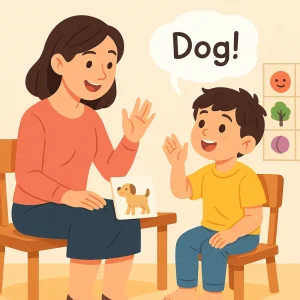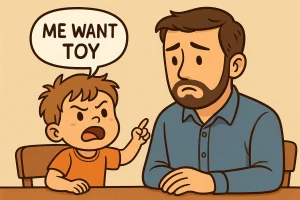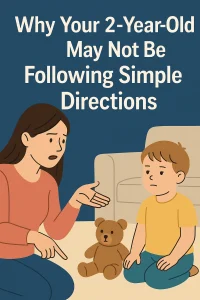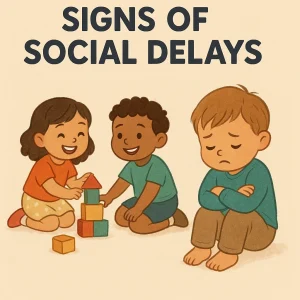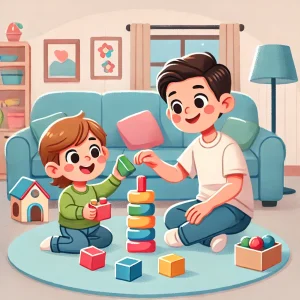Advantages of Online Counseling for Kids with ADHD
Last Updated: August 6, 2024
Online counseling for ADHD has transformed how children receive care in our fast-paced digital world. Attention-Deficit/Hyperactivity Disorder presents unique challenges for children, impacting their ability to concentrate and manage behaviors effectively. Traditional therapy has its benefits, but the rise of online counseling introduces a flexible and accessible alternative. This mode of therapy allows children to engage with skilled therapists from the comfort of their homes. It’s ideal for families living in remote locations or those juggling tight schedules. With just a computer or smartphone, online counseling integrates seamlessly into daily routines, ensuring that children have the support they need to thrive..
Book Your Speech Therapy Sessions Now
Understanding ADHD in Children
ADHD, or Attention-Deficit/Hyperactivity Disorder, is a common neurodevelopmental condition that affects many children. It’s characterized by symptoms such as difficulty paying attention, impulsivity, and hyperactivity. These symptoms can vary from mild to severe and may manifest differently in each child. Some children may primarily struggle with inattention, while others may experience hyperactive and impulsive behaviors.
Common Symptoms and Challenges:
Children with ADHD often face challenges that can impact their daily lives. They may have trouble focusing on tasks, following instructions, and completing schoolwork. This can lead to academic difficulties and frustration. Additionally, impulsivity can result in interrupting others, making hasty decisions, or struggling to wait their turn. Hyperactivity may present as constant movement, fidgeting, or difficulty staying seated, which can be disruptive in classroom settings and social situations.
These challenges are not just limited to academics; they can also affect a child’s social interactions and self-esteem. Kids with ADHD may find it hard to form and maintain friendships, as their behaviors can sometimes be misunderstood by peers. This can lead to feelings of isolation and frustration.
Importance of Early Intervention and Therapy:
Early intervention is crucial for children with ADHD. Recognizing and addressing symptoms early can significantly improve outcomes. Therapy, including behavioral interventions and counseling, can provide essential support for managing symptoms. Through therapy, children can learn strategies to improve focus, develop better organizational skills, and enhance their social interactions.
Primary Benefits of Online Counseling for Kids with ADHD
Online counseling offers numerous benefits tailored to the unique needs of children with ADHD. These advantages make it an appealing choice for parents seeking effective and accessible therapeutic support.
A. Convenience and Accessibility
One of the biggest advantages of online counseling is its convenience. It offers flexible scheduling, making it easy to fit therapy sessions around school and extracurricular activities. This flexibility is especially helpful for families with busy schedules or those in areas where specialized services are hard to find. Online therapy also allows children to connect with expert therapists from anywhere, ensuring they receive high-quality care from specialists who understand ADHD.
B. Comfortable and Familiar Environment
For many children, attending therapy sessions can be a source of anxiety. However, online counseling offers the comfort of participating from home, which can significantly reduce anxiety and help kids feel more at ease. Being in a familiar environment can also enhance a child’s ability to focus and participate actively in sessions. This comfort can lead to more effective therapy, as children are more likely to open up and engage in the therapeutic process.
C. Tailored and Interactive Approaches
Online counseling often incorporates digital tools and resources that make learning and engagement more interactive. These tools can include games, visual aids, and other interactive elements that are particularly appealing to children. Moreover, therapy sessions are personalized to meet the specific needs of each child, ensuring that the approach is tailored to their unique challenges and strengths. This personalized attention helps in addressing specific issues more effectively.
D. Improved Time Management and Organizational Skills
Children with ADHD often struggle with time management and organization. Online therapy can provide strategies and techniques to help kids manage their time better and stay organized. Therapists can work with children to develop routines and habits that are beneficial for managing ADHD symptoms. These skills are not only useful for therapy but also help in daily life, including school and home activities.
E. Development of Social and Communication Skills
Online counseling sessions can be designed to include role-playing and social scenarios, which are excellent for teaching social and communication skills. These activities can help children practice and improve their interactions with others, leading to better relationships at school and home. By enhancing communication skills, children with ADHD can become more confident in expressing themselves and understanding social cues.
Psychological and Emotional Benefits
Online counseling offers significant psychological and emotional benefits for children with ADHD, helping them navigate their feelings and develop a better understanding of themselves.
A. Increased Self-Awareness and Understanding
One of the key benefits of online counseling is that it helps children with ADHD gain a deeper understanding of their own symptoms and triggers. Through therapy, they can learn to recognize the situations or actions that may exacerbate their symptoms. This increased self-awareness is a critical first step towards self-management. Therapists work with children to develop coping strategies tailored to their specific needs, empowering them to manage their reactions and behaviors more effectively.
B. Reduction in Anxiety and Stress
Children with ADHD often experience co-existing conditions such as anxiety or depression. Online counseling provides a safe space for them to explore these feelings and learn how to manage them. Through therapeutic techniques, children can build resilience and develop stress management skills, which are crucial for navigating everyday challenges. The supportive nature of therapy can help reduce overall anxiety levels, making it easier for children to cope with their symptoms and improve their overall emotional well-being.
C. Boosted Self-Esteem and Confidence
A crucial aspect of therapy is celebrating small victories and progress, which can significantly boost a child’s self-esteem and confidence. Recognizing their achievements, no matter how small, helps children develop a positive self-image and a sense of accomplishment. This positive reinforcement encourages them to continue making efforts and reinforces their belief in their abilities. As children build confidence in their capacity to manage ADHD symptoms, they are more likely to approach new situations with a positive attitude and greater self-assurance.
Parental Involvement and Support
The involvement of parents is crucial in the success of online counseling for kids with ADHD. Parents play an integral role in the therapeutic process, providing support and reinforcement at home.
A. Guidance and Resources for Parents
Online counseling sessions often extend beyond the child, offering valuable guidance and resources for parents. Therapists can equip parents with tools and strategies to better support their child’s needs. This includes techniques for managing behaviors, creating supportive home environments, and fostering positive habits. By understanding ADHD more deeply, parents can help their children navigate daily challenges with greater ease.
Open communication between parents and children is encouraged throughout the therapy process. Parents are taught how to engage in open and understanding communication, which can strengthen the parent-child relationship. This supportive dialogue helps children feel understood and supported, making it easier for them to express their feelings and challenges.
B. Consistency and Follow-Up
Consistency is key in the therapeutic journey for children with ADHD. Regular sessions provide the necessary structure and routine, which are vital for effective treatment. Online counseling allows for consistent follow-up sessions, ensuring that progress is monitored and adjustments can be made as needed. This regularity helps in reinforcing positive behaviors and coping strategies.
Addressing Common Concerns
When considering online counseling for children with ADHD, parents and caregivers often have concerns about privacy, security, and the effectiveness of virtual sessions. It’s important to address these concerns to provide clarity and assurance.
A. Privacy and Security in Online Sessions
One of the primary concerns is the confidentiality of online counseling sessions. It’s natural for parents to worry about the safety of their child’s personal information. Reputable online therapy platforms prioritize security and ensure confidentiality through various measures. These platforms use secure, encrypted connections to protect data during transmission. Additionally, therapists are bound by professional ethics and legal requirements to maintain the privacy of their clients.
Online therapy providers implement robust technology safeguards to prevent unauthorized access to sessions and personal information. This includes using secure passwords, two-factor authentication, and other protective measures. By choosing a trusted platform, parents can be confident that their child’s sessions are private and secure.
B. Effectiveness Compared to In-Person Therapy
A common question is whether online counseling is as effective as in-person therapy. Studies and success stories show that online therapy can be just as effective, especially for children with ADHD. The flexibility and accessibility of online counseling often lead to more consistent attendance, which is important for progress. Additionally, children may feel more comfortable in a familiar environment, which can improve the effectiveness of the sessions.
Research and feedback from parents and professionals highlight the positive outcomes of online counseling. Many families report improvements in their children’s behavior, social skills, and overall well-being. The use of interactive tools and personalized approaches in online therapy can be engaging for children, making the therapy process enjoyable and productive.
Comparison of In-Person vs. Online Counseling
| Aspect | In-Person Counseling | Online Counseling |
|---|---|---|
| Location | Sessions take place at a physical clinic or therapist’s office. | Sessions are conducted remotely, allowing children to participate from the comfort of their own home. |
| Scheduling | Typically requires fixed appointment times, which may be less flexible and require travel time. | Offers flexible scheduling options, making it easier to fit sessions around school and other activities. |
| Access to Therapists | Access is often limited to local professionals, restricting options based on geographical location. | Provides access to a wider range of therapists, including specialists from across the country, without geographical limitations. |
| Comfort Level | The unfamiliar environment of a clinic or office may cause anxiety for some children, potentially affecting their engagement. | Being in a familiar and comfortable environment, like home, can help reduce anxiety and make children feel more at ease, improving their participation. |
| Use of Technology | Typically uses traditional methods with limited integration of digital tools. | Extensively uses interactive digital tools, such as games and visual aids, to enhance engagement and make therapy more interactive and enjoyable for children. |
| Parental Involvement | Parents may have less opportunity to be directly involved in sessions and may rely on post-session updates from therapists. | Online counseling often encourages greater parental involvement, providing opportunities for parents to participate in sessions and receive immediate guidance and resources. |
Conclusion
Online counseling for children with ADHD provides many benefits that make it a valuable option for families. It offers convenience and accessibility, allowing kids to attend sessions from home, which often helps reduce anxiety. The personalized and interactive nature of online therapy helps children develop important skills like time management, organization, and social interaction. It also offers emotional benefits, such as increased self-awareness, reduced anxiety, and improved self-esteem.
Parents play an essential role in supporting their child’s therapy journey. Online counseling provides them with the tools and strategies to help their child grow. It’s important to consider options like Wellness Hub, where expert therapists offer tailored care for children with ADHD. If you’re looking for effective support, consider reaching out to a professional online counselor. It’s a flexible and proven way to help your child manage ADHD symptoms and succeed in daily life.
Frequently Asked Questions:
1. What are the benefits of online counseling for children with ADHD?
Online counseling offers various benefits for children with ADHD, including flexibility in scheduling, access to expert therapists, and the comfort of attending sessions from home. It also provides tailored and interactive approaches that help develop time management, organizational, and social skills.
2. How does online counseling help with ADHD symptoms in children?
Online counseling helps children with ADHD by providing strategies for managing symptoms, improving focus, and enhancing self-awareness. It offers a structured environment for developing coping skills and provides emotional support, reducing anxiety and boosting self-esteem.
3. Is online counseling as effective as in-person therapy for kids with ADHD?
Yes, online counseling can be as effective as in-person therapy for kids with ADHD. It provides consistent access to therapy, often resulting in more regular attendance and progress. The use of digital tools and a familiar environment can also enhance the effectiveness of sessions.
4. How secure and private are online counseling sessions?
Online counseling platforms prioritize privacy and security, using encrypted connections and secure systems to protect personal information. Therapists are bound by confidentiality agreements, ensuring that sessions remain private and secure.
5. Can parents be involved in their child’s online counseling sessions?
Yes, parental involvement is an important aspect of online counseling. Therapists often provide parents with guidance and resources to support their child’s therapy at home. Consistent communication and collaboration between parents and therapists are encouraged.
6. What should I look for in an online counselor for my child with ADHD?
When choosing an online counselor for your child, look for licensed professionals with experience in treating ADHD. It’s important to choose a platform that offers secure sessions and a user-friendly interface. You may consider resources like Wellness Hub, which offers specialized care for children with ADHD.
7. How can online counseling improve a child’s social and communication skills?
Online counseling can include role-playing and social scenarios, helping children practice and improve their social and communication skills. These sessions are tailored to address specific challenges, aiding better interactions at school and home.
8. What makes online counseling convenient for families?
Online counseling is convenient because it allows for flexible scheduling and eliminates the need for travel. Sessions can be attended from home, making it easier for families to fit therapy into their busy schedules.
9. How can online counseling support a child’s academic performance?
Online counseling can help children with ADHD develop better organizational and time management skills, which are crucial for academic success. By learning how to stay focused and manage their workload, children can improve their performance in school.
10. Are there specific therapies used in online counseling for ADHD?
Yes, online counseling for ADHD often includes a variety of therapeutic approaches such as cognitive-behavioral therapy (CBT), behavioral interventions, and skills training. These therapies are tailored to the child’s needs and can be effectively delivered through virtual platforms.
About Author:
Lasya Vooturi
Clinical Psychologist and Behavioral Therapist
Lasya earned a Professional Diploma in Clinical Psychology from Amity University, deepening her understanding of psychological principles from March 2023 to March 2024. With over a year of dedicated experience as a Behavioral Therapist, she has honed her skills in applying effective therapy techniques tailored to individual needs. Fluent in Telugu, Hindi, and English, she connects adeptly with a diverse range of clients, ensuring comprehensive communication and understanding. Her approach, grounded in empathy and scientific rigor, makes her a trusted ally in navigating mental health challenges..
Book your Free Consultation Today
Parent/Caregiver Info:
Client’s Details:
* Error Message

